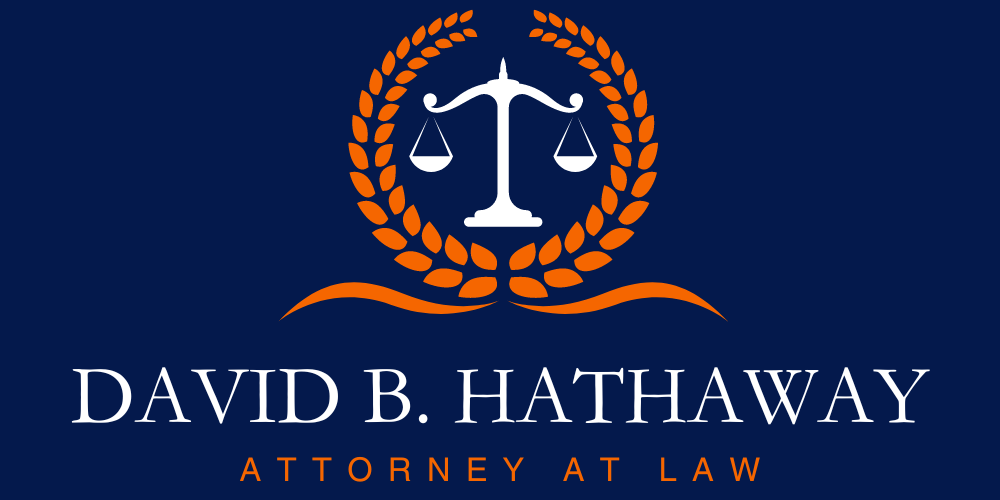Have a bankruptcy-related question? We have the answer. Check out these FAQs and give us a call today for more information!
-
What is bankruptcy, and how does it work?
Bankruptcy is a legal process that provides individuals and businesses with relief from debts they cannot repay. It allows for the elimination or restructuring of debts under the protection of the federal bankruptcy laws as administered by the United States Bankruptcy Court. According to the United States Courts, annual bankruptcy filings totaled 452,990 by the end of 2023. Know that you're not in this struggle alone. For more information and assistance, contact an expert bankruptcy attorney in Warwick, RI like those at The Law Offices of David B. Hathaway.
-
What are the different types of bankruptcy available?
The most common types of bankruptcy for individuals are Chapter 7 and Chapter 13. Chapter 7 does not involve any form of payment plan to creditors. A discharge or elimination of your unsecured debt, like credit cards and medical bills, ordinarily occurs within 90 days of the bankruptcy filing date, based on our experience. Chapter 13 allows for the restructuring of your debt into a manageable repayment plan and most often, the elimination of a significant portion of your unsecured debt. Contact an expert bankruptcy attorney in Warwick, RI today for more information!
-
Will filing for bankruptcy stop creditors from contacting me?
Yes. Once you file for bankruptcy, an automatic stay goes into effect. This stay immediately stops most creditors from contacting you, garnishing your wages, or pursuing lawsuits against you. However, there are some exceptions like certain tax proceedings or actions by family courts. For expert assistance, contact your reliable bankruptcy attorney in Warwick, RI.
-
How will bankruptcy affect my credit score?
Filing for bankruptcy with a bankruptcy attorney in Warwick, RI will likely negatively impact your credit score in the short term. However, over the course of the past several years, many of my clients have found that their credit scores have rapidly improved. In this regard, there appears to be a bit of an advantage to filing a Chapter 13 over a Chapter 7 case but, in both types of cases, the pace at which credit standing is restored is nothing like it used to be, as it no longer takes many years to rebuild credit scores following a bankruptcy filing.
-
Can I keep my house and car if I file for bankruptcy?
It depends on your situation and to some extent on the type of bankruptcy you file. However, it is an extremely rare situation that property of any kind, including a house or car, is lost as a result of a bankruptcy filing as long as any required monthly payments on such property continue to be made on a timely basis. Contact a local bankruptcy attorney in Warwick, RI to learn more.
-
What debts can be discharged through bankruptcy?
Most unsecured debts, such as credit card debt, medical bills, and personal loans, can be discharged in bankruptcy. However, certain debts like student loans, child support, alimony, and some tax obligations typically cannot be discharged. Please reach out to a local bankruptcy attorney in Warwick, RI at The Law Offices of David B. Hathaway.
-
Do I have to go to court if I file for bankruptcy?
No, not since the pandemic. In the past, you would be required to attend a meeting in Providence with a Bankruptcy Trustee called a "Section 341 Meeting of Creditors." However in Rhode Island, since the pandemic, those responsible for administering the bankruptcy process have determined that these Section 341 Meetings can be held electronically by Zoom. My clients are welcome to my office to attend these Zoom Section 341 Meetings. It is extremely rare that creditors ever appear for these Section 341 Meetings. During this meeting, you will answer questions under oath about your financial situation. Contact an experienced bankruptcy attorney in Warwick, RI for further assistance.
-
How much does it cost to file for bankruptcy?
The cost of filing for bankruptcy includes a court filing fee, which is currently either $313.00 for a Chapter 13 case or $338.00 for a Chapter 7 case, attorney fees, and other small administrative costs. I have striven over the years to keep my rates very affordable and rarely charge more than $1,200.00 as my attorney fee for the Chapter 7 cases I handle. I typically charge the same amount for Chapter 13 cases, however, in most Chapter 13 cases that I file there is normally a post-filing attorney fee that is paid through the regular monthly Chapter 13 payments made to the Chapter 13 Bankruptcy Trustee, who is charged with the responsibility of administering the case. When you need an experienced bankruptcy attorney in Warwick, RI, reach out to The Law Offices Of David B. Hathaway.
-
How long does the bankruptcy process take?
The duration of the bankruptcy process depends on the type of bankruptcy filed. Based on our experience, a Chapter 7 bankruptcy case typically takes approximately 90 days from start to finish, and a Chapter 13 bankruptcy case involves a repayment plan that lasts from 3 to 5 years, after which the remaining eligible debts are discharged. Contact your bankruptcy attorney in Warwick, RI to start the process today.
-
Will everyone know that I filed for bankruptcy?
Bankruptcy filings are public records, so theoretically, anyone could access the information. However, bankruptcy filings are not commonly publicized, and it's unlikely that people outside of your creditors and legal representatives will become aware unless you tell them. For assistance with your bankruptcy proceedings, reach out to an experienced bankruptcy attorney in Warwick, RI at The Law Offices of David B. Hathaway.

Share On: